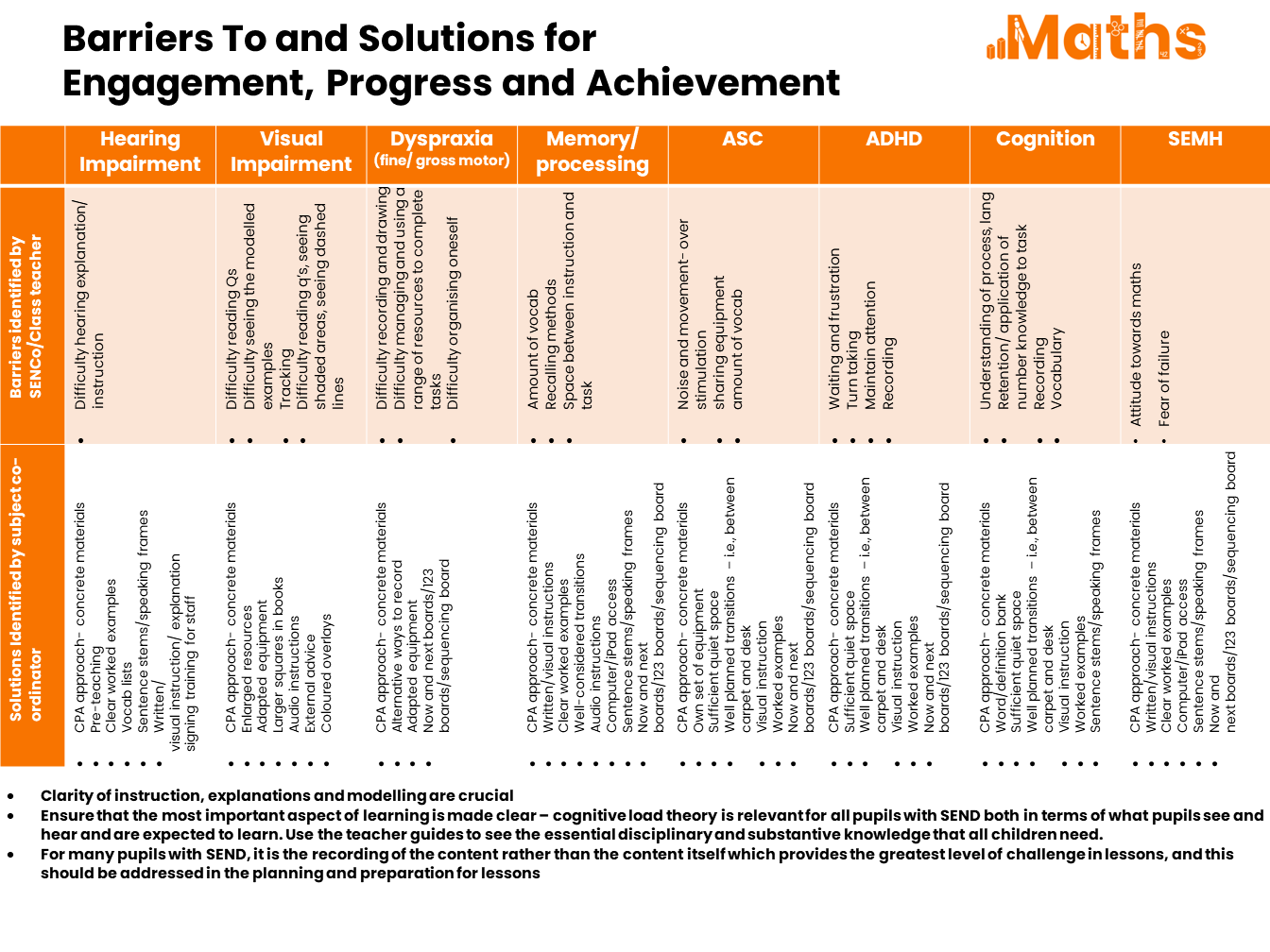Maths
“Creating resilient and passionate mathematicians, who will flourish for the future.”
The Big Idea
At St Mary’s, we have created a dynamic and inclusive mathematics curriculum that embraces the Concrete-Pictorial-Abstract (CPA) mastery approach, empowering our children to develop a deep conceptual understanding of mathematical concepts and apply them confidently in real-life situations.
Our vision is to foster a love of maths throughout school by nurturing our children’s curiosity, thinking skills and self-belief. Our mastery approach allows all children to develop as resilient and passionate mathematicians, who will flourish for the future.
Much of our Mathematics curriculum is drawn from White Rose Maths to ensure a coherent and consistent sequence of content to support sustained progression over time. Other elements have been written by staff and advisors based on these sequences. We thank all of them for their role in bringing our curriculum together.
Key Principles of our curriculum
Concrete Experiences:
We believe in providing our children with hands-on learning experiences, using manipulatives, real-life objects, and interactive activities to enable them to explore mathematical concepts in a tangible and meaningful way. By engaging in concrete experiences, children build a solid foundation of mathematical understanding before moving to more abstract representations.
Pictorial Representations:
We recognise the importance of visual representations in enhancing children's comprehension and retention of mathematical concepts.
Our curriculum incorporates a variety of pictorial tools, such as diagrams, charts, and models, to help children visualise and make connections between concrete and abstract ideas. These representations support children in developing mental imagery and deeper conceptual understanding.
Abstract Reasoning:
Our curriculum emphasises the gradual transition from concrete and pictorial representations to abstract thinking. We encourage children to move beyond specific examples and apply their understanding to solve problems in more generalised contexts. Through regular practice and guided instruction, children develop the ability to think critically, make logical connections, and reason abstractly, enhancing their problem-solving skills.
Scaffolded Instruction: We recognise that each child has unique learning needs and abilities. Our mastery approach, using CPA, allows all children, at various stages of mathematical understanding, to access their learning. By tailoring instruction to individual needs, we foster a positive learning environment that values each child's progress and achievements.
Immediate Intervention: If a child fails to grasp a concept or skill, this is identified quickly and gaps in understanding are addressed systematically to prevent them falling behind.
Real-World Connections: We believe that mathematics is not just a theoretical subject but a practical tool for navigating the world. Our curriculum emphasises the application of mathematical concepts in real-life contexts, encouraging children to identify and solve authentic problems. By making connections between mathematics and everyday experiences, we aim to instil a sense of relevance and empower children to become confident mathematical thinkers and problem solvers.
Yearly Overviews








